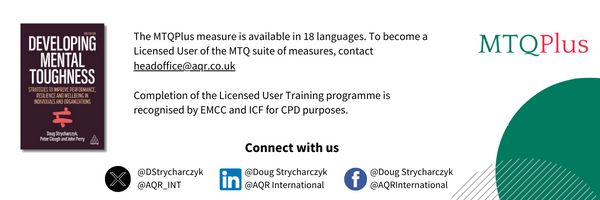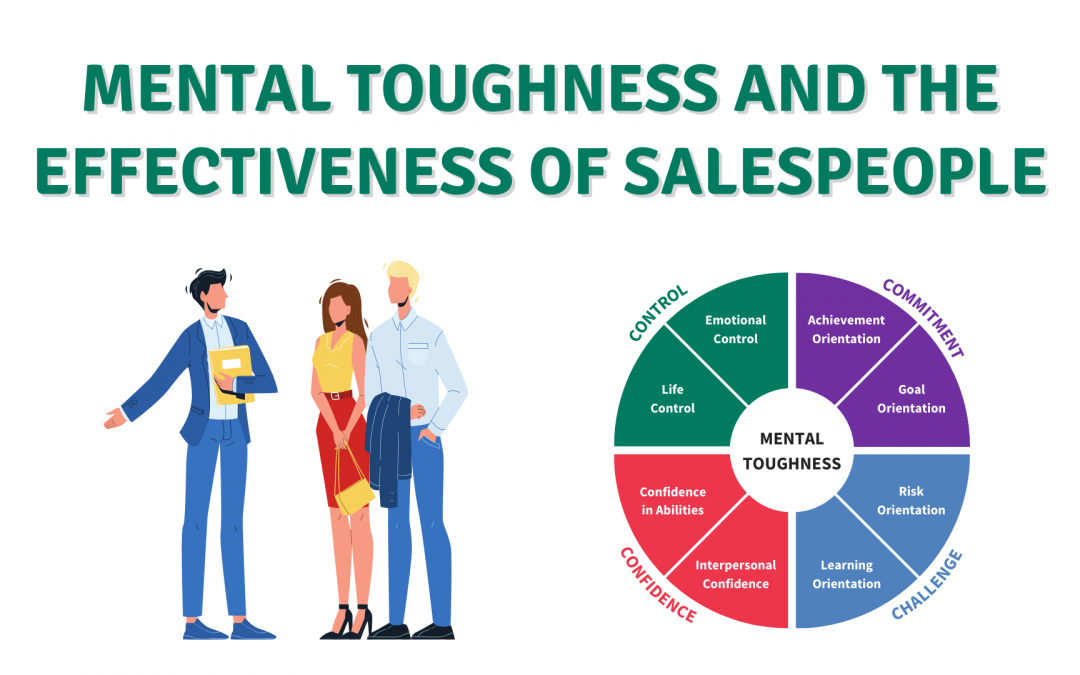A Case Study in Four Financial Services Organisations.
Sales is a profession where performance is a crucial output and efficiency is a major enabler, particularly in the Financial Services Industry.
Katarzyna Kloskowska–Kustosz, a leading Mental Toughness practitioner, carried out a study to examine whether salespeople who achieve the highest sales results differ from less well-performing salespeople in terms of their mental toughness and its component factors. And to identify whether some of the mental toughness factors are more significant than others.
The study looked at 60 salespeople from 4 large Polish Financial Services organisations (2 Banks and 2 Insurance Companies, between them employing 4350 salespeople). Each organization randomly selected a number of their best and their poorer performing salespeople.
The Performance element was assessed on sales income generated in the three months prior to their assessment. The results were compared with a random sample of 377 people working in positions in the organisation other than salespersons.
Mental Toughness was assessed using the MTQ measure. The 4Cs Mental Toughness model is incredibly well evidenced and describes “ a personality trait which determines, in large part how we respond mentally to stressors, pressure, opportunity and challenge.” It is this “how we think” aspect which is a key determinant of “how we act”.
The figure summarises the concept and its factors.

Two interesting and valuable observations emerged:
The level of mental toughness emerged as a significant factor distinguishing salespeople as a professional group from other groups of employees in the same organisation/sector.
The study clearly showed that salespeople as a group tend to have high levels of mental toughness compared to other employees in the same organisation.
Salespeople’s scores were higher than other employees on several factors: Confidence in Abilities, Commitment, Interpersonal Confidence and Life Control.
One observation suggested that creating sales teams from “back room” staff without reliable selection and targeted development activity may not always give satisfactory results even though those individuals will have relevant knowledge, skills and background.
The distinguishing factors of a good salesperson are high levels of Commitment and Confidence
The study confirmed what we see in many other studies. Looking at the overall mental toughness of salespeople is not sufficient to guarantee success. The mental toughness profile is important.
The study appears to confirm that high performance in salespeople is mainly determined by two Mental Toughness constructs – Commitment and Confidence.
Effective salespersons approach their tasks with a mental approach where confidence in their knowledge and skills, engaging effectively with others, as well as being goal orientated and tenacious in achieving their goals are paramount. Even where there are difficulties and obstacles, and success is not always the result – rejection is a common experience.
An interesting observation is less effective salespeople often had higher levels of the Control factors compared to other mental toughness factors. This suggests that salespeople who have a strong sense of self-worth and “can do” but who do not have sufficient self-awareness of their mental toughness to be effective. Until they develop this level of self-awareness, they are unlikely to understand how to optimise their mental toughness.
It may also be the case that a strong “can do” approach is not always appealing to a client. Financial services clients might prefer contact with experts who are professional in their approach – persons certain of their knowledge and skills.
Where they “go the extra mile”, a salesperson’s high level of commitment may come in handy, as long as it’s without excessive pressure. Again, this indicates the importance of self-awareness.
Mental Toughness is generally seen as a positive quality (and it very often is). As with many positive qualities, without self-awareness, these can be misdirected. The Mentally Tough will have the inner strength and outer orientation to succeed in a challenging profession but do need to understand and reflect on how this is received by others.
The study is broadly consistent with observations from the application of MTQ in assessing more than 200 staff in a large Middle Eastern Bank. Performance and Aspirations were closely related to Mental Toughness scores.
Development of the Mental Toughness concept has led to the creation of the 8-factor MTQPlus which enables users to “dig deeper” in creating that self-awareness about what helps me and what hinders me in the way I approach my work.
Risk Orientation and Learning Orientation have emerged as key qualities in dealing with new clients and new situations and responding positively at all times including setbacks and rejection.



